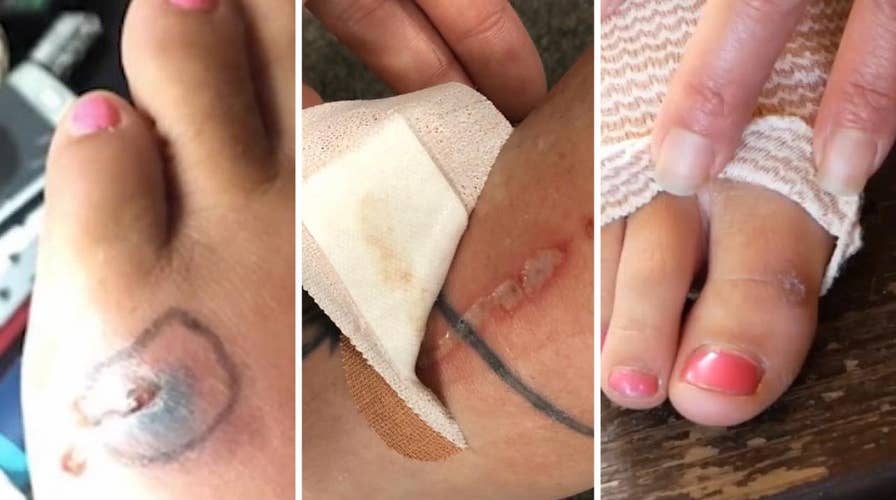More flesh-eating bacteria cases reported in Florida
Although the infection is not very common, scientists expect more cases to be reported as the weather gets hotter as the bacteria flourishes in warm water.
A Florida man believes a trip to the doctor for pain-relieving shots in his lower back and butt before heading to the Panhandle with his wife nearly cost him his life, after a life-threatening bacteria potentially entered his system through those needle punctures.
FLESH-EATING BACTERIA: HOW TO PREVENT NECROTIZING FASCIITIS THIS SUMMER
“They operated six days straight,” Mike O’Grady, 68, told ABC Action News. “Six consecutive days, had surgeries to make sure they got everything out. It spread to my pelvis. They cut me from here to here, and they took my digestive system out and inspected it to make sure there was nothing necrotizing on it and then put it all back in.”
O’Grady said he spent two weeks at Citrus Memorial Hospital fighting necrotizing fasciitis after noticing the infection when he got back from his trip in late May.
“When it got to be like the size of a lemon inside one of my butt cheeks, it was a sign something wasn’t right,” he told ABC Action News. “I could feel this like an abscess type thing forming on my bottom, really inflamed, hot and very swollen.”
GRAPHIC: FLESH-EATING BACTERIA RAVISHES WOMAN'S FOOT, EXPOSING HER BONES
Necrotizing fasciitis, or flesh-eating bacteria, has been dominating the headlines this summer, as more and people come forward with their harrowing tales of infection following trips to southern beaches in the warm weather. Flesh-eating bacteria is a rare infection that spreads quickly in the body and can cause death. According to the Centers for Disease Control and Prevention (CDC), accurate diagnosis, rapid treatment and prompt surgery are important to stop the infection.
Fever, dizziness or nausea soon after injury or surgery could signal the onset of the infection. Later symptoms may appear as ulcers, blisters or black spots, changes in color of skin, pus or oozing form infection and fatigue. The bacteria most commonly enter the body through cuts and scrapes, burns, insect bites, puncture wounds or surgical wounds, but it can also occur after blunt trauma that does not break the skin.
CLICK HERE TO GET THE FOX NEWS APP
Now home, O’Grady said that he’s sharing his story because he wants others who get shots before swimming to be aware of possible risk.









































